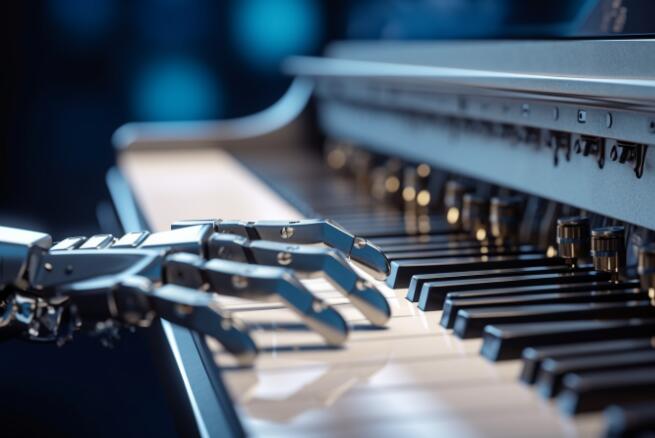Recently, there has been a wave of controversy in the field of artificial intelligence music.copyrightAfter being sued by three major record companies, Universal Music, Sony Music and Warner Music, AI music startupUdioreleased a statement today insisting its models do not reproduce copyrighted works or artists' voices.
In a statement posted on social media platform X, Udio stressed that the goal of its model training is to develop an understanding of musical ideas. The company believes that these musical ideas are the fundamental components of musical expression and do not belong to any individual or entity. Udio said its system is explicitly designed to create works that reflect new musical ideas, rather than copying existing content.

Source Note: The image is generated by AI, and the image is authorized by Midjourney
To support this position, Udio claims to have implemented state-of-the-art filtering technology to ensure that its models do not copy copyrighted works or imitate the voice of a specific artist. The company stressed that they had no intention of copying the content in the training set.
The announcement is a direct response to a lawsuit filed by the three major record companies, including Universal Music, Sony Music, and Warner Music, which reportedly accused Udio and another AI startup, Suno, of intentionally infringing copyright by copying their music to train artificial intelligence.
The dispute highlights the legal and ethical challenges facing the application of artificial intelligence technology in the creative industry. On the one hand, AI companies claim that their technology is designed to understand and innovate musical concepts rather than simply copy them; on the other hand, the traditional music industry is worried that AI may infringe on the intellectual property rights of artists and companies.
Udio’s response raises a host of questions: How can an AI model create original works based on learning from existing music? What is the line between “ideas” in music and specific expressions protected by copyright? Should AI-generated music enjoy the same legal protections as human creations?
This dispute is likely to be an important turning point in the relationship between AI and the creative industries. As the case progresses, the industry will closely watch how the court weighs the balance between technological innovation and intellectual property protection.
Regardless of the outcome, this dispute will have a profound impact on the future application of AI in music creation, and may prompt the further improvement of relevant laws and regulations to meet the new challenges brought about by the AI era.